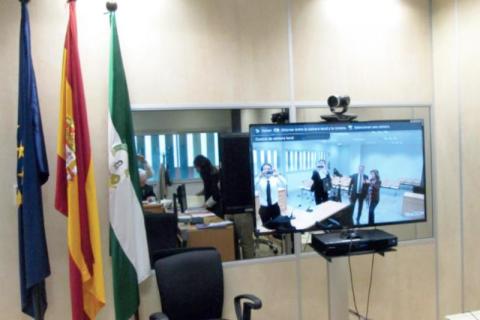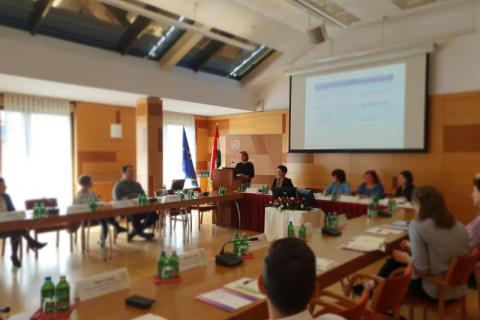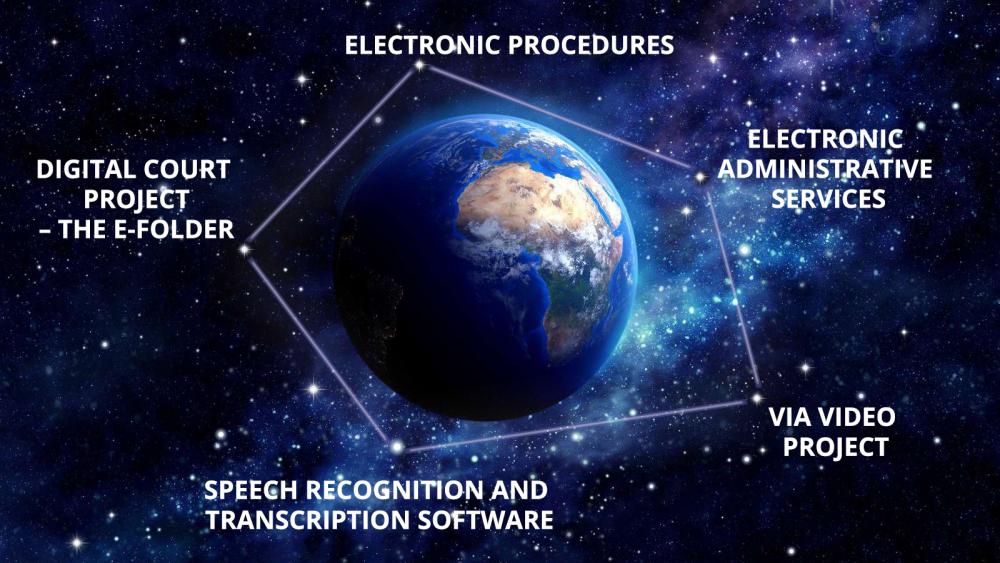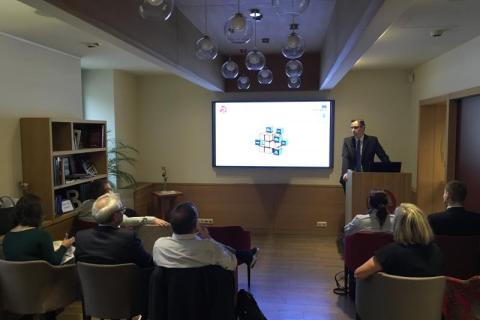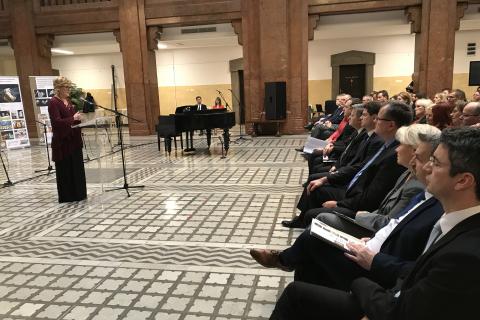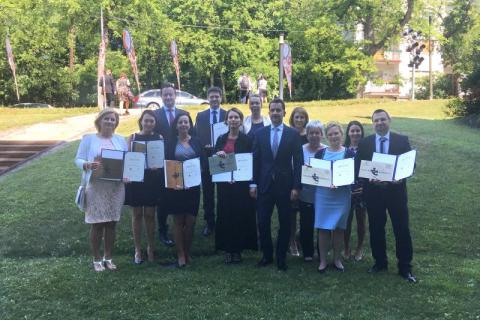Részletes keresés
The next event of the THEMIS competition is coming up: semi-final D will take place between 2-5 July in Bulgary.
According to the justice scoreboard, the Hungarian judiciary is at the frontline of Europe: the results in the area of digitalisation are excellent, the length of administrative court cases is the fourth shortest, and the length of civil cases is the fifth shortest in Hungary – highlighted dr Tünde Handó, President of the National Office for the Judiciary (NOJ) at the press conference held before the general meeting of judges at the Regional Court of Szeged.
In December 2018, 44 judges held a total of 103 remote hearings, which means a seven-fold increase compared to the first month, September. The hearings took place on 88 occasions in the penitentiary, in 7 cases in the courtroom, and 8 times from abroad. During the period under review, 67 accused, 22 convicted persons or other parties, 2 persons under proceedings, 2 civil litigants and 10 witnesses were heard with the help of the new equipment.
The government called the Ministry of Justice to prepare a proposal for a substantial salary increase for all judges, in cooperation with the Ministry of Finance and the National Office for the Judiciary (NOJ) - announced the Minister of the Prime Minister’s Office on 13 December 2018. At this week’s Government Info, Gergely Gulyás called the current judicial salaries unworthy and said that the Cabinet intends to introduce a new wage bill by January 1, 2020 at the latest.
Last year, 80 percent of the bankruptcy and liquidation proceedings have already been launched by electronic means at the courts throughout the country. That means a total of 95 112 cases submitted electronically, which constitutes an increase of more than 60 percent compared with the year 2017.
The number of lawsuits pending for more than two years has been reduced to half at national level – it is a point when we need to come to a halt and acknowledge the results of the judiciary. Therefore, the reporting season is an outstanding event, when it becomes clear what tasks the courts are dealing with – said the President of the National Office for the Judiciary (NOJ) at the press conference prior to the general meeting of judges at the Tatabánya Regional Court.
Remote hearing can simplify, speed up procedural actions in civil, economic, administrative and labor cases and make them more cost-effective.
The National Office for the Judiciary (NOJ) is a leader in the employment of autistic people – said the Head of the Aura Association for Autistic Community, at the workshop organised for present and future employers at the Hungarian Academy of Justice.
The report of the president of the National Office for the Judiciary (NOJ) on the activity of the Office and the courts of Hungary in 2017 has been accepted by the Parliament. Dr. Tünde Handó was heard by the Committee of Justice of the Parliament, and the Parliament itself last December, on which occasion she described 2017 as the year of preparation, as on 1st January 2018 the new Civil Procedure Act (Pp.) and the Administrative Procedure Act (Kp.), while on 1st July 2018 the new Criminal Proc
Representatives of another renowned institution were introduced to the digital developments of the National Office for the Judiciary (NOJ).
There is no future without past – reminded the President of the National Office for the Judiciary (NOJ) the participants of the Consilium Petitorium which is held since 2014 for the recently appointed judges, assistant judges and trainee judges. In front of the 300 participants Dr. Tünde Handó talked about the importance of the care of traditions and the research of the history of the judiciary.
The Hungarian National Assembly – in line with the motion of the Committee on Justice – confirmed the President of the National Office for the Judiciary (NOJ) in her office.
For domestic workplaces, it is an increasingly important aspect, a need even, to pay special attention to family-friendly policies, and the judiciary is no exception.





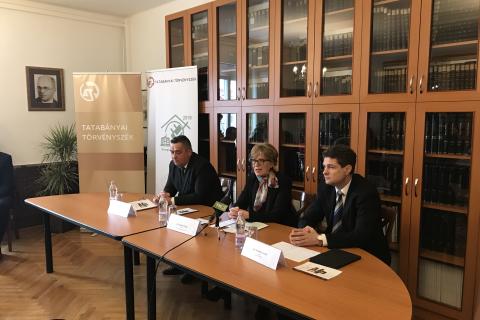
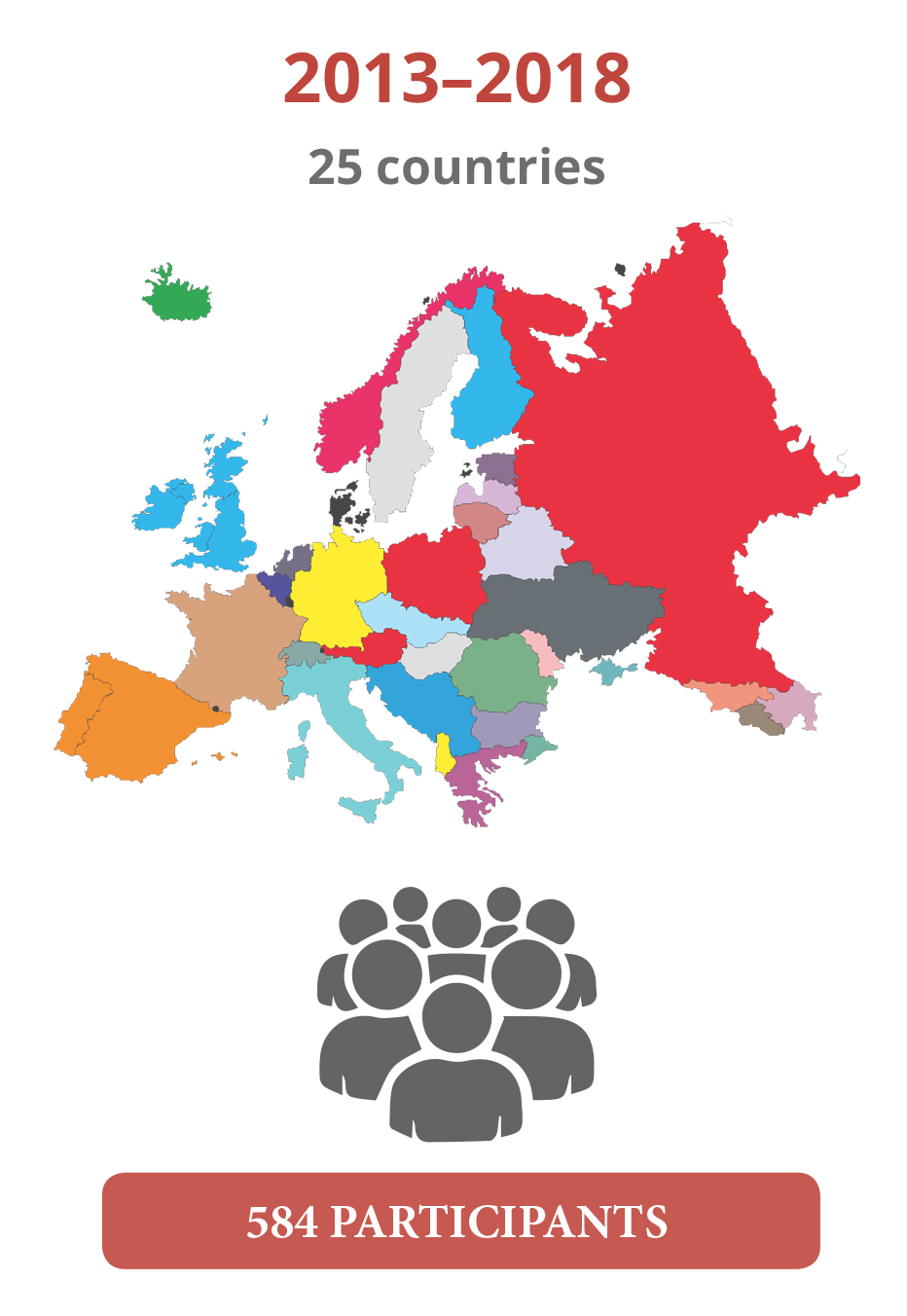 Continuing the success of the last six years’ conferences with the participation of 584 guests from 25 European countries in total, the National Office for the Judiciary organises the next international Conference on Courts and Communication in Budapest on 15-16 October 2019.
Continuing the success of the last six years’ conferences with the participation of 584 guests from 25 European countries in total, the National Office for the Judiciary organises the next international Conference on Courts and Communication in Budapest on 15-16 October 2019.